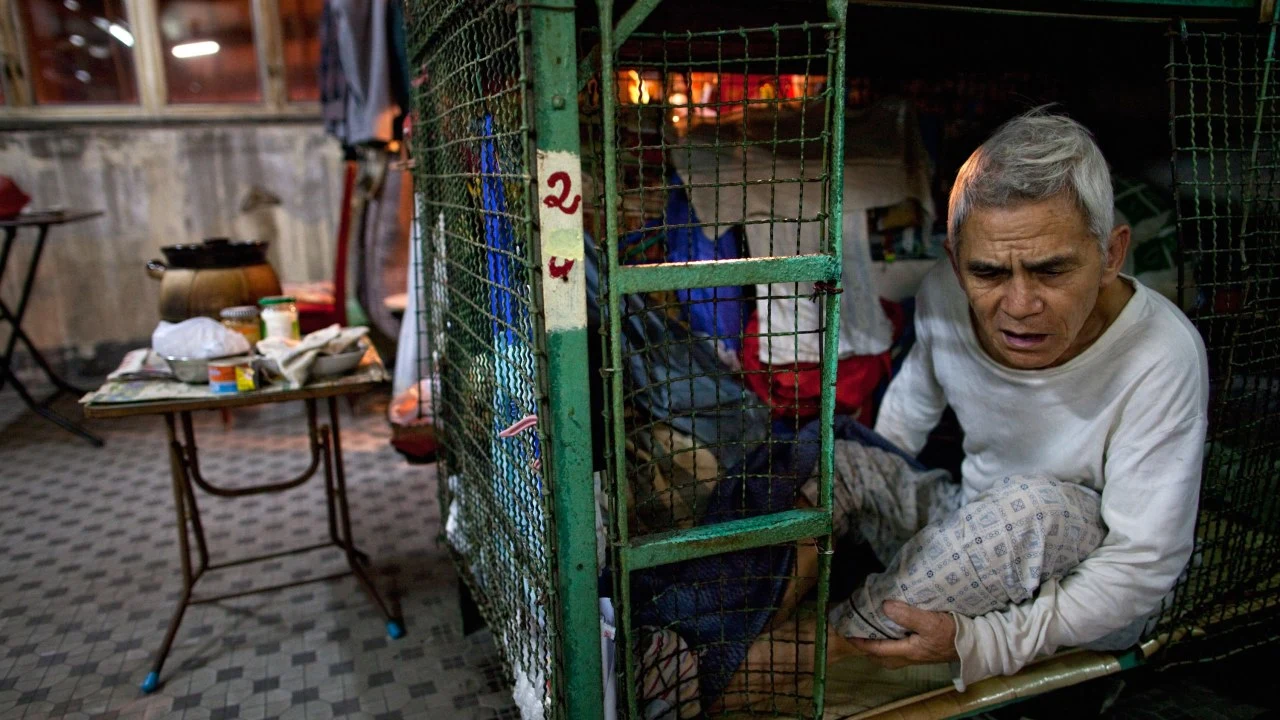
Exploring the Top 10 Happiest Countries to Live in for 2024
Northern Europe is renowned for its high quality of life, and while happiness can be somewhat elusive to quantify, recent reports have successfully ranked the happiest countries in the world based on factors such as GDP per capita, quality of healthcare, and robust social support systems. Perhaps unsurprisingly, the United States is not among the world’s happiest nations, ranking 23rd. But which other countries top the list where people are most content? Today on “Across the Globe,” we’ll be exploring the ten happiest countries to live in for 2024. Just a quick note: of course, happiness can be found or missed in any country, but this list provides a snapshot of the nations that typically score higher on the happiness spectrum.
Number 10: New Zealand
New Zealand has consistently ranked highly on global happiness indexes, thanks to a combination of factors, with a key one being its strong social support system. This is evident in the government’s commitment to well-being on both an individual and societal level. In 2019, New Zealand’s government introduced a “Well-being Budget” that prioritised mental health, children’s well-being, building a productive nation, and transforming the economy. Adopting the Gross National Happiness Index, which focuses on citizens’ well-being over purely economic metrics, was a move led by Prime Minister Jacinda Ardern. This initiative aimed to further prioritise mental health, reduce child poverty, and address inequalities among New Zealanders. Ardern’s adoption of this index exemplified how the nation was redefining success, showing that New Zealand believes economic growth should not come at the expense of its citizens’ happiness. With this strong governmental push towards happiness, it’s no wonder that New Zealanders are some of the happiest people in the world. Additionally, New Zealand’s culture, which emphasises community and resilience, contributes significantly to residents’ happiness. For instance, following the pandemic, New Zealanders came together as a society, engaging more in activities like helping strangers, volunteering, and donating to charity—all of which foster a happier society.
Number 9: Australia
Close to New Zealand is Australia, which not only shares a spot on the continent of Oceania but also ranks among the happiest countries globally. According to the Organisation for Economic Co-operation and Development (OECD), a significant reason for Australians’ happiness is the country’s strong work-life balance. People in Australia work fewer hours annually compared to the OECD average, with only 14% of employees reporting that they work very long hours. This allows for more leisure time and opportunities to spend with family and friends, which likely contributes significantly to Australians’ overall well-being and happiness. Additionally, Australians enjoy a high-quality environment, not only in terms of the nation’s breathtaking natural beauty but also in terms of essentials. For example, an impressive 91% of Australians report being satisfied with the quality of their water. Despite all its progress towards happiness, it’s important to recognise that Australia does face challenges, such as high levels of income inequality, ranking 14th highest for inequality out of the 28 OECD countries.
Number 8: Switzerland
Like Australians, the Swiss enjoy an exceptional work-life balance. In Switzerland, it’s common for workers to take extended lunch breaks, with some even reuniting with their families in the middle of the workday. When the weekend arrives, you’re unlikely to find the average Swiss resident at their desk finishing up work from the week. Instead, they are more likely to be engaging in leisure activities. Another key aspect of Switzerland’s work-life balance is that people here work far fewer hours compared to other similar countries. For instance, in the US, the average worker clocks in 219 hours more per year than the average Swiss worker—that’s a full nine days more, or a week and a half of extra work every year. Interestingly, Switzerland remains strong and stable despite its residents working fewer hours, with a triple-A credit rating. Residents also have a high level of trust in their government, with Switzerland recently ranking 7th on a list of the least corrupt countries in the world. Lastly, Switzerland’s commitment to preserving its natural landscapes and promoting outdoor activities significantly contributes to its citizens’ happiness. With easy access to stunning natural beauty, including the Alps, waterfalls, and lakes, it’s no surprise that Switzerland consistently ranks among the happiest places on Earth.
Number 7: Luxembourg
If you know anything about Luxembourg, you might be aware of its incredibly strong economy, boasting the highest GDP per capita globally. While this alone is a significant driver of happiness for the nation, like many of the countries we’ve looked at so far, Luxembourg’s work-life balance is also a big contributor. In Luxembourg, citizens work fewer hours per year compared to the OECD average, allowing more time for leisure activities and family and community engagement—all essential elements of happiness. Specific policies, such as the country’s approach to work hours and vacation entitlements, along with generous parental leave, further enhance residents’ ability to enjoy life beyond work. Finally, Luxembourg’s diverse and international population, with almost 50% of people being from other nations, as well as its high standard of living, access to healthcare, and low crime rates, all contribute to its status as one of the world’s happiest countries.
Number 6: The Netherlands
Like many of the places on this list, the Dutch enjoy an excellent work-life balance, with Dutch employees working the fewest long hours out of all the countries in the OECD. Happiness seems almost ingrained into the Dutch way of living. A key contributor to happiness in the Netherlands is the practice of “niksen,” which is the art of doing nothing in an effort to promote relaxation and mental well-being. This concept encourages individuals to take breaks and holidays unapologetically, helping to prevent burnout and even enhance overall productivity. In addition to niksen, the country’s high levels of institutional trust, low youth unemployment, strong community bonds, and commitment to acceptance further contribute to its happiness. For instance, the Netherlands was the first country to legalise same-sex marriage, exemplifying the inclusive and accepting nature of Dutch society.
Number 5: Norway
Like the Netherlands, Norway has its own version of niksen, called “friluftsliv.” This is the Norwegian concept of outdoor life, which essentially encourages citizens to participate in an active outdoor lifestyle. With Norway’s abundance of natural wonders, from fjords and glaciers to the mesmerising Northern Lights, Norwegians have ample opportunities to connect with nature and enjoy the mental health benefits associated with time outdoors. Norway’s progressive policies, such as the “Allemannsrett” law, which grants people the freedom to roam and camp on any uncultivated land in the country, also foster a sense of community and trust. In addition to prioritising outdoor activities, the country’s robust social safety net, including comprehensive unemployment benefits and child support programmes like generous paid parental leave and universal early childhood education and care, further enhances the overall happiness and security of its citizens.
Number 4: Sweden
Swedes not only enjoy some of the shortest working hours in the world, but they also have some of the most extensive parental leave benefits and vacation time, showcasing the government’s commitment to residents’ well-being. In terms of working hours, only 1% of Swedish people report working very long hours. When it comes to parental benefits and vacation time, Sweden’s residents enjoy a full five weeks of paid vacation a year, or 25 days excluding weekends, plus 480 paid days of parental leave per child. For reference, in the US, the average worker gets just 11 paid vacation days per year and 29 days of paid maternity leave. This ample time off not only allows Swedes to connect with their families but also enables them to pursue leisure activities, supported by Sweden’s bike-friendly infrastructure. Finally, like the Netherlands and Norway, Sweden also has its own philosophy called “lagom,” which promotes moderation and balance in all aspects of life, encouraging a sense of contentment and appreciation for the simple things.
Number 3: Iceland
One key reason Iceland ranks as one of the happiest countries in the world is the strong sense of community present here. According to the OECD, 98% of Icelanders believe they have someone they can rely on in times of need, the highest rate among all OECD countries. Interestingly, despite having the highest divorce rate in Europe and the highest percentage of women working outside the home, these factors do not detract from the country’s happiness. Instead, they reflect a society that values individual freedom and equality, further contributing to Icelanders’ overall happiness levels. Lastly, the country’s natural environment, with its clean air and plenty of breathtaking natural wonders—from caves and waterfalls to volcanoes—also plays a crucial role in the well-being of its residents.
Number 2: Denmark
Denmark is famous for its philosophy of “hygge,” which refers to the feeling of contentment that comes from enjoying life’s simple pleasures, such as spending time with friends and family. This cultural emphasis on appreciating small joys is likely one of the many factors that make Danish people some of the happiest in the world. Like many other Northern European countries, Denmark also prioritises the well-being of its residents through its governmental policies. For instance, Denmark’s former Prime Minister attributed the nation’s happiness to three main factors: public trust in government, media, and business; strong public services; and something called “flexicurity,” which essentially refers to a work-life balance that not only allows for an optimal balance between work and free time but also provides security for those who are unemployed to get back into work.
Number 1: Finland
The happiest country in the world is Finland. People here are the most content anywhere on Earth due to a combination of factors, including a strong social safety net, gender equality, and a family-friendly society. Looking first at its social safety net, Finland spends a significant portion of its GDP on social protection programmes, which include pensions, healthcare








